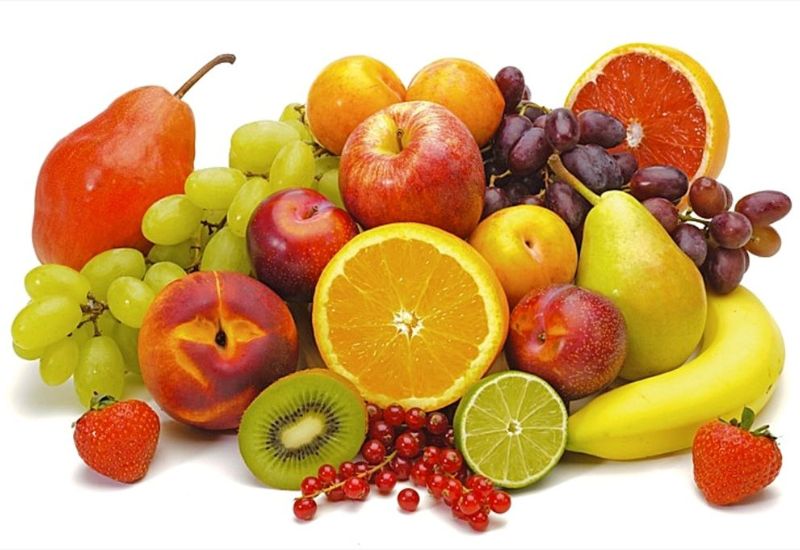Adopting a balanced diet and maintaining healthy lifestyle habits can help asthma patients improve their overall health and manage their condition more effectively. Therefore, understanding asthma diet what foods to avoid and which to include is crucial for those with asthma. Here are some detailed recommendations for an asthma diet.
1. Foods to Avoid for Asthma Patients
1.1. High-Calorie Foods
High-calorie meals can contribute to weight gain, which can negatively impact health and exacerbate asthma symptoms. Studies show that asthma symptoms are often more severe in overweight and obese individuals. Therefore, it’s essential to monitor calorie intake to maintain a healthy weight and prevent worsening symptoms. This is one of the key aspect of an asthma diet.

High-calorie foods not only cause weight gain but also increase the risk of dangerous diseases.
1.2. Carbonated Foods and Drinks
Consuming large meals or foods that cause bloating can put pressure on the diaphragm, particularly for those with acid reflux, leading to breathing difficulties. Asthma patients should eat smaller, more frequent meals and avoid carbonated beverages.
1.3. Stimulants
Alcohol and tobacco should be avoided as they can trigger asthma attacks. Cigarette smoke contains harmful toxins such as nicotine, carbon monoxide, and carcinogens that can cause bronchial spasms, increase mucus production, and trigger acute asthma episodes.
1.4. Food Preservatives
Natural plant preservatives like salicylates, found in coffee, tea, and some spices, can trigger asthma symptoms in sensitive individuals. Sulfites, used to keep foods fresh, can also provoke temporary asthma symptoms and produce sulfur dioxide, which irritates the lungs. It’s essential to check food labels for these preservatives to avoid potential triggers.
1.5. Allergenic Foods
Many asthma patients experience worsened symptoms due to food allergies. If you have a known food allergy, it’s best to avoid those foods to prevent asthma attacks and severe symptoms.
1.6. Salty Foods
High-sodium diets can increase bronchial reactions. Asthma patients should limit their salt intake to protect their respiratory health. This is another important aspect of an asthma diet.
1.7. Frozen Foods
Frozen foods often contain sulfites and other preservatives that are harmful to asthma patients. It’s best to avoid items like frozen fish and seafood to improve asthma management.
1.8. Packaged and Canned Foods
Preservatives like sodium bisulfite found in packaged and canned foods can trigger asthma attacks. Despite the convenience of these foods, asthma patients should limit their consumption.
2. Foods Beneficial for Asthma Patients
2.1. Vitamin C-Rich Foods
Foods high in vitamin C, such as oranges, grapefruits, kiwis, broccoli, cantaloupe, and tomatoes, can help improve asthma symptoms like allergic rhinitis and wheezing. Vitamin C also helps prevent other severe illnesses such as cancer, cardiovascular diseases, and anemia. Including these foods is part of a positive asthma diet.
2.2. Fresh Fruits and Vegetables
Eating a variety of fresh fruits and vegetables strengthens the immune system, enhances resistance, and reduces the recurrence of asthma attacks.

Fresh fruits provide essential nutrients for health and should be eaten daily by asthma patients.
2.3. Foods Rich in Vitamins A and D
Vitamin A improves lung function and can be found in dark leafy greens, carrots, pineapples, broccoli, and pumpkins. Vitamin D, found in milk, salmon, eggs, and mushrooms, helps reduce upper respiratory infections and improve lung function in asthma patients.
2.4. Magnesium-Rich Foods
Magnesium has anti-inflammatory properties beneficial for asthma patients. Foods rich in magnesium include avocados, green leafy vegetables, nuts, seeds, legumes, bananas, artichokes, whole grains, milk, and dairy products like yogurt and cheese. These foods are essential in an asthma diet.
3. Additional Tips for Asthma Patients
– Keep warm, especially the neck area, during cold weather.
– Use asthma medications as prescribed by your doctor.
– Avoid using medications prescribed to others.
– Do not alter the dosage or discontinue medications without consulting your doctor to prevent asthma attacks.
– Avoid exposure to animal fur, pollen, and cigarette smoke.
– Always wear a mask when going outside.
– Keep your living space clean and free from dust.

Visit a respiratory specialist for expert advice on a suitable diet.
By following these asthma diet recommendations and lifestyle tips, asthma patients can better manage their condition and improve their overall health.








